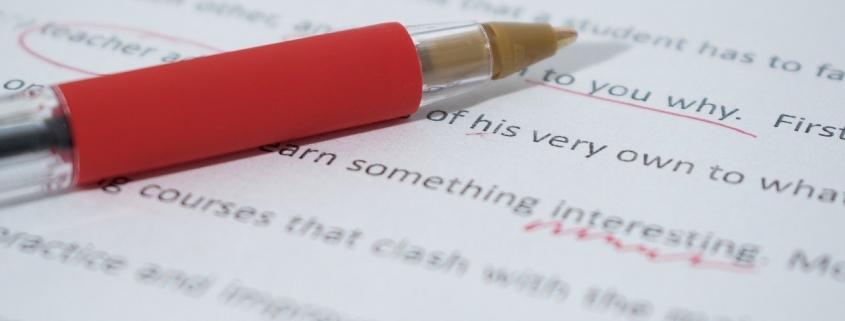How to answer an A Level History essay question?
Essay Writing: Revisited
In contrast to the typical posts that feature specific themes, such as the Cold War and the United Nations, I will re-cap on the critical aspects of essay writing, which is for Section B. This is done in view of the GCE A Level examination for H1 and H2 History in November 2019. Previously, I have also posted a similar article that highlighted relevant areas of study.
1. Be familiar with the syllabus requirements
It is important to understand the featured themes that are covered in the examination. By doing so, you can derive a clear strategy for the actual day.
(a) For H2 History (9752), there are Papers 1 and 2:
- For Paper 1, you are required to answer ONE essay question from Theme II: Understanding the Global Economy and ONE essay question from Theme III: Safeguarding International Peace and Security.
- For Paper 2, you are required to answer ONE essay question from Theme I: Search for Political Stability and ONE essay question from Theme II: Economic Development after Independence
(b) For H1 History (8821), there is one paper, but the examination format is identical to the H2 syllabus:
- You are required to answer ONE essay question from Theme II: The Cold War and Asia
- Also, you have to answer ONE essay question from Theme III: The Cold War and the United Nations
(c) Be familiar with the topics tested within each theme
Within each theme, there are several topics that students are expected to learn and apply in the essay section. For example, H2 History Paper 2 Theme II has two main areas: ‘Paths to economic development’ and ‘Asian Financial Crisis’.
Although some students hold the assumption that they can spot, meaning that they focus on specific topics, while excluding others, it is a risky strategy to take.
Although some students hold the assumption that they can spot, meaning that they focus on specific topics, while excluding others, it is a risky strategy to take. In view of the recent 2019 A Level examination (for H2 History), the ‘Asian Financial Crisis’ was not featured in Section B. We have gathered feedback from students and some revealed that there were those who were unable to write the second essay due to the lack of content familiarity.
Therefore, our concluding remark is that you are strongly advised against spotting as it can result in such disastrous consequences. Instead, it is crucial to cover all relevant topics within each theme. At least, you should cover the fundamental content for the topic that you are less likely to select during the examination.
2. Read the essay question carefully
Cliché as it sounds, this word of advice should not be ignored. From the question itself, you can derive the given perspective as well as the contrasting viewpoint. Misinterpretation is a typical issue that some students encounter in their study of the subject.
(a) What is the question looking for?
In History essay writing, students are required to analyse the extent of agreement based on the given perspective set by the question. Look out for phrases like ‘how far do you agree’ and ‘how important‘.
(b) Are we allowed to introduce other factors/perspectives not featured in the question?
This is a major consideration as the decision to introduce irrelevant factors in a narrow-based question can compromise your essay grade.
The following are two essay questions:
- How far do you agree that the Cold War hindered the effectiveness of the United Nations?
- How far do you agree that the Cold War was the most significant obstacle that hindered the effectiveness of the United Nations?
Clearly, we can observe that the second essay question is broader in nature as students are allowed to introduce other factors besides the ‘Cold War’ to answer the question. In contrast, the first question is more specific than the latter.
3. Manage your time wisely
In general, everyone is given the same amount of time for the A Level examination – 3 hours. To the uninitiated, 180 minutes may be perceived as long. However, one must be aware of the need to answer 1 source-based case study question and 2 essay questions within the time limit.
To the uninitiated, 180 minutes may be perceived as long. However, one must be aware of the need to answer 1 source-based case study question and 2 essay questions within the time limit.
Furthermore, students are assessed based on their ability to perform under pressure, such as deriving a clear essay structure and forming well-analysed arguments that are backed with adequate evidence. As such, it is folly to leave practice to the last phase of your two-year study.
You should set time aside for timed practices, even if it is for one essay question. When you are attempting the timed practice, you are not only reviewing your content familiarity, but also re-wiring your brain to think fast and clearly. Over time, you develop the quick-thinking skills to form arguments and critique the given perspective effectively.
4. Prepare yourself thoroughly
More importantly, you should be mentally prepared for the A Level examination. Enter the examination venue with the anticipation that there may be ‘abstract-sounding’ questions that are intended to throw students off. Again, some students who sat for the 2019 A Level H2 History examination have shared with us that certain essay questions were difficult to attempt due to their style of phrasing.
Enter the examination venue with the anticipation that there may be ‘abstract-sounding’ questions that are intended to throw students off.
Indeed, from our observations as well, some essay questions tested narrow areas that were seemingly challenging to address at first sight. Yet, if the standard thinking and answering steps were to be applied, such abstract questions can still be answered.
Therefore, one final tip for essay writing is to practise as many questions as you can. Do not simply refer to past year preliminary examination questions and attempt to do so right away. Instead, you should be aware of the possible areas of testing to cover the fundamental aspects. Then, you can intensify your efforts by answering complex questions. Find the right balance of questions to have adequate time spent on each theme. Besides, you can gather feedback from your teacher, tutor or classmate to check if there are other arguments to broaden your discussion.
Alternatively, you can join our JC History Tuition as we conduct regular essay writing skills development workshops to refine your thinking and writing techniques. During these lessons, you will receive concise study notes, practice questions and reference answers to enhance your study efforts. Also, you can consult our JC History Tutor to identify your areas of improvement, such as essay structure, perspective setting and evidence explanation.
The H2 and H1 History Tuition feature online discussion and writing practices to enhance your knowledge application skills. Get useful study notes and clarify your doubts on the subject with the tutor. You can also follow our Telegram Channel to get useful updates.
We have other JC tuition classes, such as JC Math Tuition and JC Chemistry Tuition. For Secondary Tuition, we provide Secondary English Tuition, Secondary Math tuition, Secondary Chemistry Tuition, Social Studies Tuition, Geography, History Tuition and Secondary Economics Tuition. For Primary Tuition, we have Primary English, Math and Science Tuition. Call 9658 5789 to find out more.
On a separate note, this is the final article in the 52-week cycle of 2019. It has been an enriching and meaningful year as I have covered diverse topics relating to A Level History. At the start of 2019, I have made the decision to embark on this endeavour primarily to provide students with a useful educational platform to access learning resources conveniently. Although some would claim that the freer access to the Internet has made information gathering easier, I believe that this website will ease the search process and empower students to learn purposefully. In anticipation of the upcoming decade, I will continue to expand on this platform. Let’s look forward to another series of informative, insightful and interesting articles!











